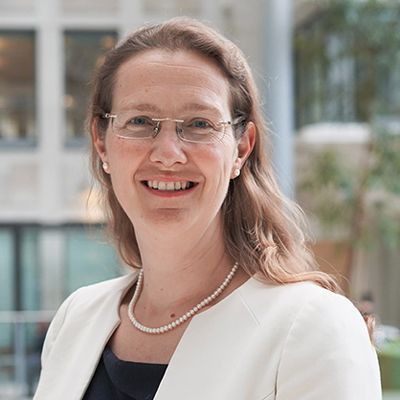Some councils taking part in the government’s “safety valve” SEND deficit reduction programme have “removed” their deficits, a top civil servant has said.
Susan Acland-Hood told MPs on the public accounts committee there were “examples through safety valve of councils that have reduced and in some cases removed their deficit through the work they’ve done”.
Under the scheme, cash-strapped councils get millions of pounds from the Department for Education to pay off deficits, but only if they make changes to their SEND systems.

Quizzed by MPs about efforts to get SEND deficits under control, Acland-Hood said the government was “seeing some really good progress from councils” through the safety valve scheme.
Pressed on whether any councils had removed their deficits and left the scheme, she said: “I think I’d have to write to you to give you the list of names, but we do have a group of authorities that have removed their deficits as a result.”
The first safety valve deals were signed in the 2020-21 financial year. Some extend to 2028, while others are shorter. Stoke’s deal was due to come to an end in the last financial year, while Richmond’s is due to end in 2024-25.
Schools Week approched the DfE for a full list of councils that had reduced or removed their deficits through the scheme.
Bury got a £20 million bailout. But in a report published this week, Ofsted and the Care Quality Commission found “widespread and/or systemic failings” at the council and health services – giving it the lowest rating for a SEND inspection.
‘People have got to recognise the reality’
In 2020, the government issued a “statutory override” of standard accounting rules, letting councils keep deficits in their dedicated schools grant off their books.
That override is due to come to an end after the 2025-26 financial year, leaving whoever forms the next government with a big decision – either to extend the override or plug councils’ deficits.
Acland-Hood told MPs: “I can’t at this point give you any assurance after 2025-26, like everything else on that timeline.
“I think everybody accepts that…having the override is not ideal and that we’d like to get to a place where we don’t have it. But I think everybody also recognises that the simple removal of the override doesn’t solve the underlying problem, and that people have got to recognise the reality.
“As I say we have got examples through safety valve of councils that have reduced and in some cases removed their deficit through the work they’ve done.”
DfE is ‘pulling together’ analysis
The government would not confirm which councils had cleared deficits. But analysis of data in the public domain by expert Matt Keer suggests just one council – Richmond – has done so.
Minutes of the high needs block meeting state it was told that Richmond “has been highlighted by the DfE as a success of the SVA programme however if the funding ceases there is a high risk that within 5 years the borough will be in the same financial position it was before the SVA was introduced”.
Acland-Hood said work through the safety valve and delivering better value programmes, coupled with the government’s SEND and AP change programme, is “how we propose to get to the point where we no longer need the statutory override”.
Asked what evaluation the government had done of the programmes, Acland-Hood said “we’ve already got the kind of summative work from the first round of safety valve, pulling together that analysis of what people have done, what’s been effective and what hasn’t”.
“I also mentioned the change programme work, and that’s essentially designed as a piece of work to test and track early implementation of that set of propositions. We are looking at the impact on school and local authority budgets as part of that.”









Your thoughts